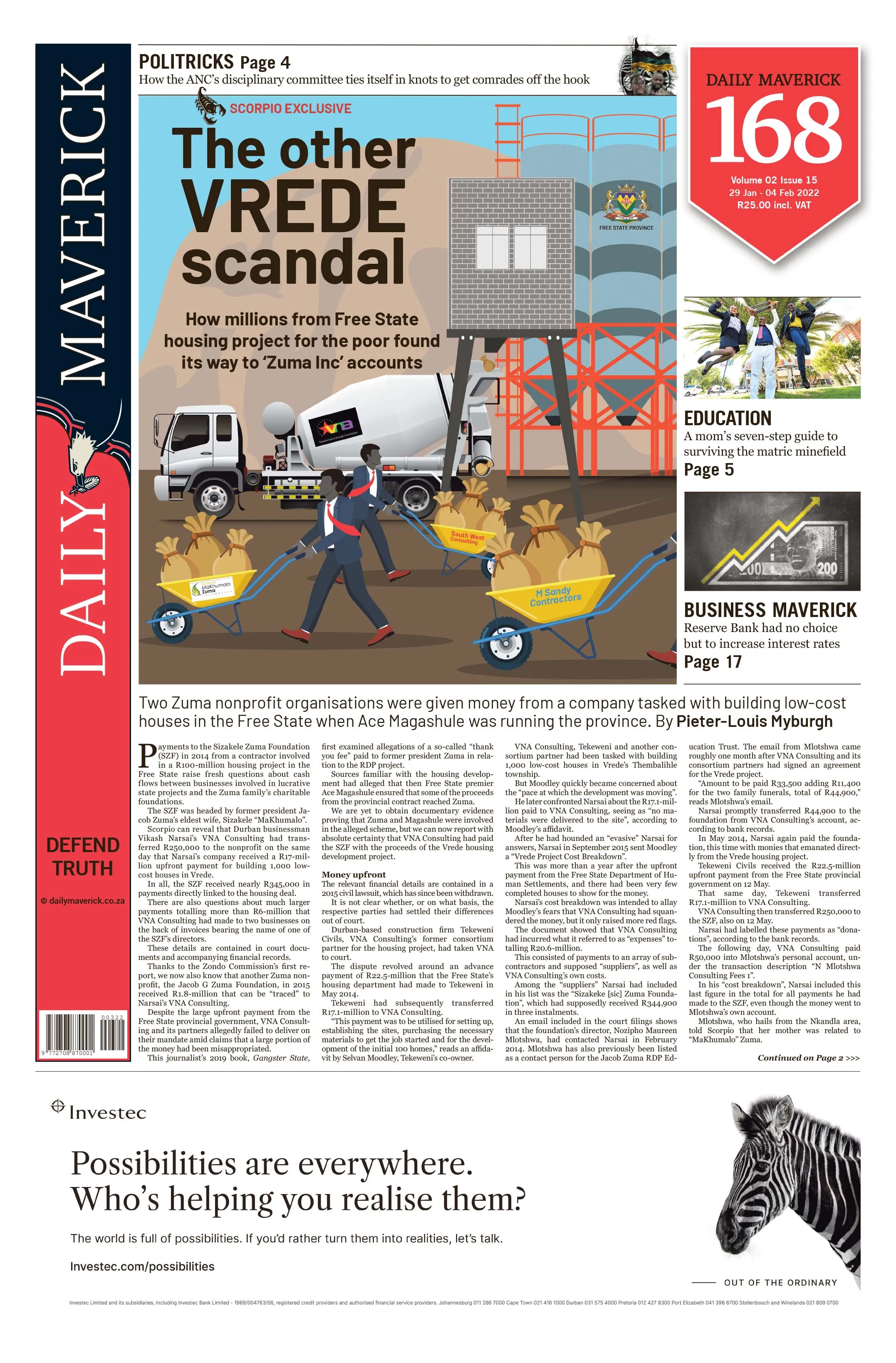Everyone has their tactics. And because I’m a glass-half-full kinda person, I choose to focus on the slivers of good news that come my way, to celebrate our successes and applaud our heroes. This gives me the fortitude to confront the negative head-on, without getting bogged down in it.
Our matric marks are a case in point. The pass rate for the 2021 year was 76.4%, 0.2 percentage points higher than in 2020. The release of the marks triggers cel- ebrations as families celebrate and universities snap up the best and brightest.
But it also always triggers a flurry of debate about whether the 30% pass rate should be adjusted upwards, the quality of our teaching as well as discussions about those the system has left behind.
And then there’s the jobs discussion. This is the one that gets to me. Although the official unemployment rate is 34.9%, we all know it’s much higher for the youth.
Dawie Roodt, chief economist at the Efficient Group, estimates that 70% of the class of 2021 who start looking for work now will still be without jobs this time next year. Azar Jammine, chief economist at Econometrix, puts the number at 50% within the next six months. Whatever the exact number, it’s just gut-wrenching.
This is the time of life when young people, armed with a hard-fought matric, should be able to indulge in dreams, hopes and excitement for the future. This is their opportunity to shape their own lives.
But, for many, the opposite is true. Matric is a proxy for intellect. And if your pass is poor then you have been judged and found wanting. And the future will, quite possibly, be as tough as hell.
But there is a ray of hope – a small sliver – coming from the technology industry, the very same one that threatens to destroy jobs as technology reshapes the working world.
To reshape the world as we know it, the tech industry needs people who can code computer software – tens of thousands of them. Yet fewer than 3,000 computer science students graduate each year, according to the Council for Higher Education, leaving SA with a massive skills gap.
This is a problem crying out for solutions. It is here that training companies such as WeThinkCode and Explore Data Science Academy are stepping into the gap. They have devised a way of recruiting students that is not based on their matric marks, but on their aptitude.
It goes without saying that software development requires specific skills, but these are not necessarily the skills you expect. Aside from a cognitive mind, a good command of written and spoken English, strong interpersonal skills, inquisitiveness and problem-solving skills are all important (think linguists and philosophers). Our matric results are not a good indicator of who can and who can’t code.
On the contrary, Nyari Samushona, CEO of WeThinkCode, believes our income inequality percolates into the education system and brands you. Dumb. Not dumb. It’s hard to disagree with her.
Since its inception in 2016, WeThinkCode has enrolled 721 students, almost all of whom come from low-income households, of whom 500 have graduated. Of this number, 93% have been employed and the new intake is almost on board.
Explore, which was launched in 2013 and offers part-time and full-time courses in data science, has graduated thousands of students. Of course, they are not graduating with full-blown computer science degrees – but they have skills, a base from which they can build if they choose to.
The limit, to some extent, is funding. WeThinkCode could double its intake overnight with more funding.
Both companies partner with pioneering firms in the private sector – almost all of the banks, Telkom, Vodacom, BCX, Yoco, Dimension Data and online game developer Derivco – investing upfront for talent.
There is also funding to be found from
To reshape the world as we know it, the tech industry needs people who can code computer software – tens of thousands of them. Yet fewer than 3,000 computer
science students graduate each year
NGOs and international development organisations. And Explore will allow you to study and repay the loan once you have a job.
If you don’t find a job, you don’t pay. Clever. This is not to ignore the fact that there is a crisis in our education system, and it’s not a panacea to SA’s severe jobs crisis, but it’s this kind of creative thinking that deserves to be celebrated – and built on. DM168



















Comments - Please login in order to comment.